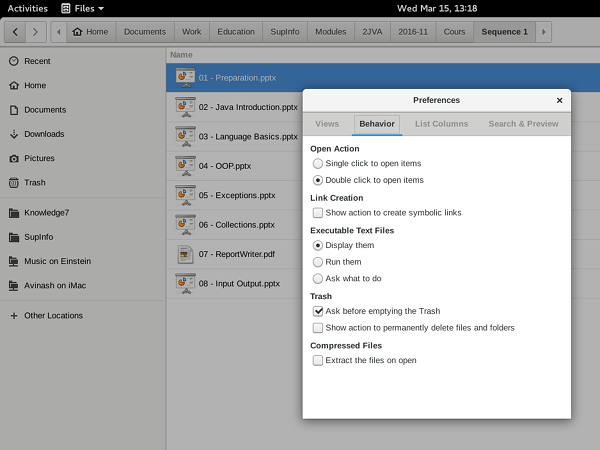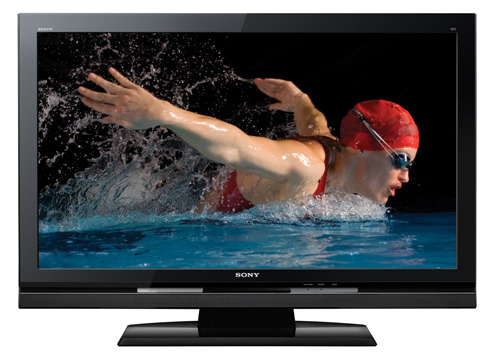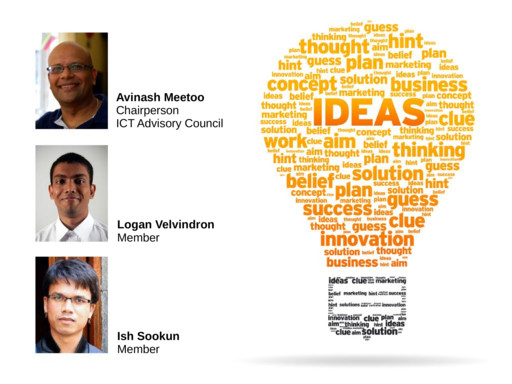
Every 21 April, we celebrate the World Creativity and Innovation Day in Mauritius.
This year, the Mauritius Research Council organised a workshop on Creativity and Innovation and the the ICT Advisory Council, which I preside, was given a slot of 30 minutes. I quickly prepared a few slides like I like them to be (beautiful, memorable and witty) and I asked Logan Velvindron and Ish Sookun, both members of the ICT Advisory Council, to join me in a panel on Creativity and Innovation among Youth.

The first topic was about having fun when learning and creating. I mentioned that school and teachers can be boring, especially in our age of having Wikipedia and YouTube in our pockets. I said that it was time for our education system to become fun again, where young people can enjoy creating and learning a lot of new things in the process. Both Ish and Logan explained how fun they have everyday at work and how important this is for them.
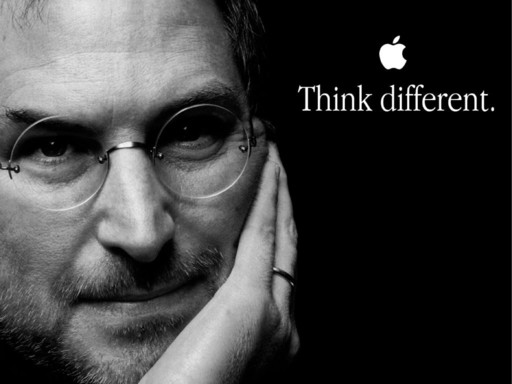
The second topic was about not to be afraid to be different. In Mauritius, we have a culture of conformism. Women have specific roles to play. Kids also. And, of course, everyone should remain at his place. This is bullshit! Our world is created by people who think differently and who are not afraid to take risks and disrupt existing establishments… Logan and Ish told the audience how they discovered computers, decided to become geeks and do things differently from others. They were very thankful to have supportive parents who didn’t try to impose anything on them.
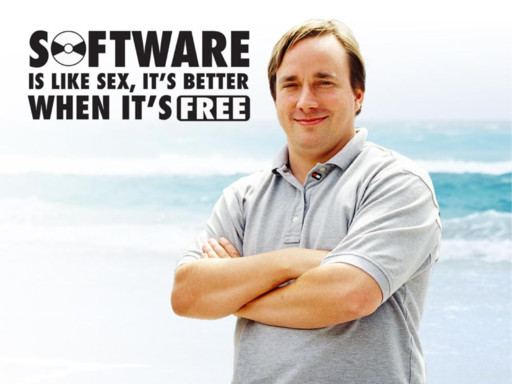
The third topic was about being a geek and the value of open source software for a country like Mauritius. I explained that open source software is free and this is very important for Mauritius which is not a very rich country. But I also explained how having access to the source code of software is essential for Computer Science teachers like me to create the new generation of top programmers which Mauritius will need in the future. Young people cannot learn complex programming just by reading a book or listening to a teacher: they need to see real source code of real complex software. Logan and Ish explained how they got involved in open source software and how we all now form part of organisations such the Linux User Group of Mauritius and Hackers.mu and the value those organisations have.

The last topic was about being a doer rather than a talker and that aiming for perfection, while sometimes a good thing, can sometimes prevent us from achieving. This is something I have noticed over the years in Mauritius: we love our committees. Doers are not revered though. This mentality has to change. I told the audience that we are as good as anyone from anywhere, whether it is the USA or France or India. But we should stop focusing on doing speeches. We should identify small but important problems and find feasible solutions for them.
After the panel, I got a question from Anibal Martinez who is collaborating with the Government to set up an incubator. He asked me how we can solve the Computer Science education issue in Mauritius.
I told him that in the short term, a lot can be done with ad-hoc training courses, such as the ones that I provide at Knowledge Seven. But this is not a viable model for the country. In the medium to long term, state-funded universities should find a way to revamp their Computer Science departments, which are absolutely substandard at this moment, to produce an adequate number of very competent computer scientists every year. The industry is ready to move up a level but there are not enough competencies.
Thanks to Ish and Logan for participating in the panel.
